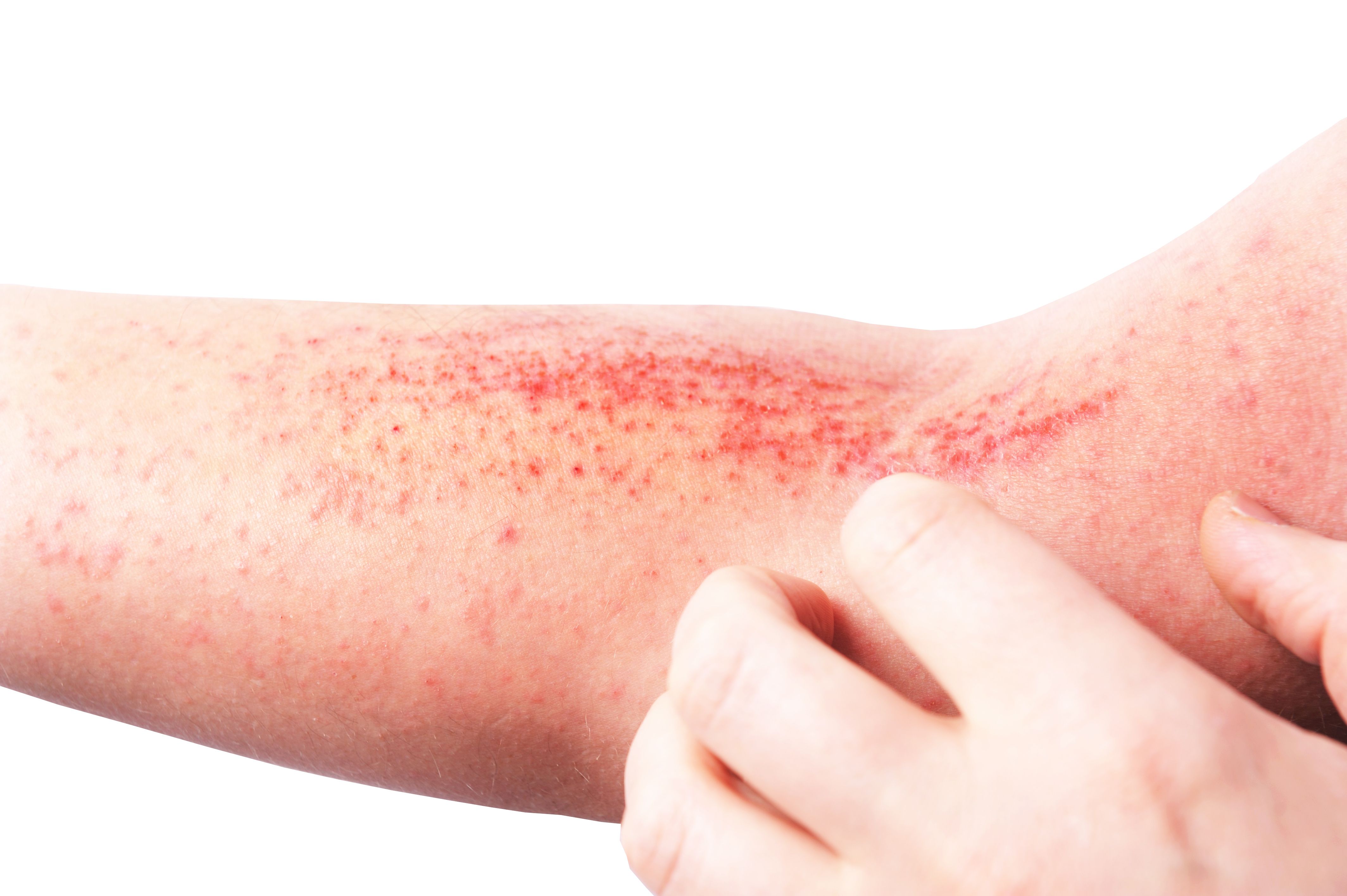Dupixent Gets FDA Label Update in Atopic Dermatitis With Uncontrolled Hand and Foot Involvement
Trial shows 52% of patients with atopic dermatitis with uncontrolled moderate-to-severe hand and/or foot involvement administered Dupixent experienced a clinically meaningful reduction in itch on hands and feet vs. 14% with placebo.
Image credit: lial88 | stock.adobe.com

The FDA has updated the label for Regeneron Pharmaceuticals, Inc’s Dupixent (dupilumab) to include efficacy and safety data for patients 12 years of age and older with atopic dermatitis with uncontrolled moderate-to-severe hand and/or foot involvement. Dupixent is an interleukin (IL)-4 receptor alpha antagonist that has been approved for the treatment of adults with moderate-to-severe atopic dermatitis whose disease is not adequately controlled with topical prescription therapies or when those therapies are not advisable. The drug also has approved indications for asthma, chronic rhinosinusitis with nasal polyposis, eosinophilic esophagitis, and prurigo nodularis.
“We rely heavily on our hands and feet throughout the day, making atopic dermatitis particularly disruptive for patients who experience constant itch and painful cracking and bleeding skin lesions on these critical areas of the body,” principal inventor of Dupixent George D. Yancopoulos, MD, PhD, board co-Chair, president, and chief scientific officer at Regeneron, said in a press release. “Dupixent has been used to treat hundreds of thousands of patients with moderate-to-severe atopic dermatitis around the world since its initial U.S. approval in 2017, and we are pleased that Dupixent is now the first biologic with data in the label supporting its use in this particularly challenging subset of the disease.”
The updated data come from the Phase III LIBERTY-AD-HAFT trial, which was the first to analyze a biologic drug in this difficult-to-treat patient population, according to Regeneron. Dupixent’s label was also updated in the European Union, with regulatory submissions ongoing in other countries.
The double-blind, placebo-controlled study enrolled 133 adolescents and adults with moderate-to-severe atopic hand and foot dermatitis who previously showed an inadequate response or intolerance to topical corticosteroids. Patients in the treatment cohort were administered Dupixent (n=67) every two weeks at a dose of 300 mg in adults, 200 mg in adolescents, or 300 mg based on body weight to compare safety and efficacy data with a placebo cohort (n=66). After 16 weeks, 40% of patients administered Dupixent achieved clear or almost clear skin on their hands and feet vs. 17% of those in the placebo cohort (p≤0.01), which was the trial’s primary endpoint.
Further, 52% of patients administered Dupixent experienced a clinically meaningful reduction in itch on hands and feet vs. 14% with placebo (p<0.0001), which was the trial’s key secondary endpoint; 69% of patients administered Dupixent had an average decrease in signs of hand and foot lesions from baseline vs. 31% with placebo (p<0.0001); patients administered Dupixent showed a 75% average improvement in hand eczema disease severity from baseline vs. 40% with placebo (p<0.0001); and patients administered Dupixent experienced significant improvements in measures of hand and foot skin pain, sleep, and hand eczema-related quality of life.
In terms of safety, patients in the Dupixent cohort showed similar safety outcomes to the known profile of Dupixent for atopic dermatitis, with overall rates of adverse events at 66% in the Dupixent group compared with 74% for placebo.
“Atopic hand and foot dermatitis can extensively disrupt the lives of patients, given the intense itch and painful skin lesions it causes on essential body areas,” principal trial investigator Eric L. Simpson, MD, Frances J. Storrs Professor of Medical Dermatology at the Oregon Health and Science University, said in the release. “In this trial, Dupixent significantly improved disease signs, symptoms and quality of life measures for this particularly difficult-to-treat subset of atopic dermatitis patients, with itch improvement seen as early as one week after the first dose. While the efficacy and safety profile of Dupixent is well-established for atopic dermatitis more broadly, these positive results are the first demonstrating the impact on specific and heavily used areas of the body.”
Reference
Dupixent® (Dupilumab) U.S. Label Updated With Data Further Supporting Use in Atopic Dermatitis With Moderate-To-Severe Hand and Foot Involvement. Regeneron. News release. January 16, 2024. Accessed January 16, 2024. https://investor.regeneron.com/news-releases/news-release-details/dupixentr-dupilumab-us-label-updated-data-further-supporting-use
Protecting Temperature-Sensitive Pharmaceuticals, Without Unnecessary Plastic Waste
March 24th 2025Advances in the life sciences are driving a significant increase in the number of temperature-sensitive pharmaceuticals. The packaging industry is meeting the moment with advances of its own, including high-performance, environmentally-friendly materials that allow life science companies meet stringent thermal requirements and ambitious CO2e reduction goals. In this episode, TemperPack’s CEO Peter Wells shares insights from working with life sciences to move to certified biobased, home compostable, and curbside recyclable shipping solutions.











